Filter by
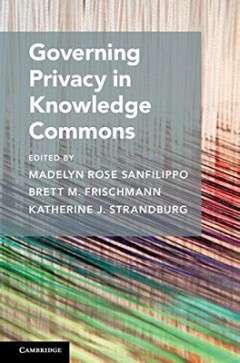
Governing privacy in knowledge commons
Privacy, in contrast with secrecy, is a relational concept, achieved when personal information is shared appropriately between actors. Viewed in this way, privacy is necessarily contextual and complex because norms about appropriate flows and use of personal information are socially negotiated and often contested. (Nissenbaum, 2009) Privacy is thus a problem of collective action. Moreover, pers…
- Edition
- -
- ISBN/ISSN
- 9781108749978
- Collation
- xi, 289 pages; illustration
- Series Title
- Cambridge studies on governing knowledge commons
- Call Number
- 342.08 SAN g
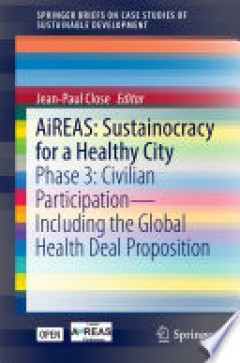
AiREAS: sustainocracy for a healthy city : Phase 3: civilian participation - …
Development Economics, Atmospheric Protection / Air Quality Control / Air Pollution, Urban Studies/Sociology, Social Choice/Welfare Economics/Public Choice, Group Theory and Generalizations, Data Mining and Knowledge Discovery
- Edition
- -
- ISBN/ISSN
- 9783319456201
- Collation
- xiii, 333 p
- Series Title
- SpringerBriefs on Case Studies of Sustainable Development
- Call Number
- 307.12160949245 JEA
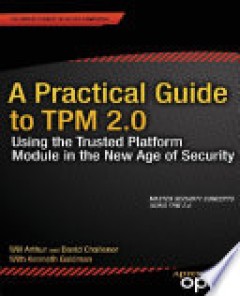
A practical guide to tpm 2.0 : using the trusted platform module in the new a…
A Practical Guide to TPM 2.0: Using the Trusted Platform Module in the New Age of Security is a straight-forward primer for developers. It shows security and TPM concepts, demonstrating their use in real applications that the reader can try out. Simply put, this book is designed to empower and excite the programming community to go out and do cool things with the TPM. The approach is to ramp t…
- Edition
- -
- ISBN/ISSN
- 9781430265849
- Collation
- XXVII, 392 p
- Series Title
- -
- Call Number
- 005.82 ART a
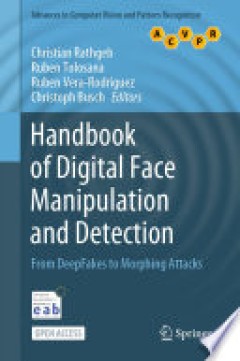
Handbook of digital face manipulation and detection : from DeepFakes to morph…
This open access book provides the first comprehensive collection of studies dealing with the hot topic of digital face manipulation such as DeepFakes, Face Morphing, or Reenactment. It combines the research fields of biometrics and media forensics including contributions from academia and industry. Appealing to a broad readership, introductory chapters provide a comprehensive overview of the t…
- Edition
- -
- ISBN/ISSN
- 9783030876647
- Collation
- IX, 487 p
- Series Title
- -
- Call Number
- 621.367 HAN c

Kantianism for animals : a radical Kantian animal ethic
This open access book revises Kant’s ethical thought in one of its most notorious respects: its exclusion of animals from moral consideration. The book gives readers in animal ethics an accessible introduction to Kant’s views on our duties to others, and his view that we have only ‘indirect’ duties regarding animals. It then investigates how one would have to depart from Kant in order t…
- Edition
- -
- ISBN/ISSN
- 9783031019302
- Collation
- XXI, 245 P
- Series Title
- -
- Call Number
- 170.92 NIC k
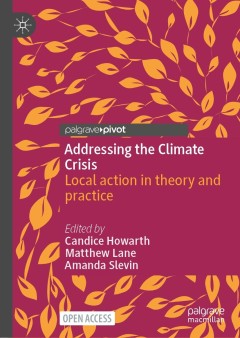
Addressing the Climate Crisis: Local Action in Theory and Practice
This open access book brings together a collection of cutting-edge insights into how action can and is already being taken against climate change at multiple levels of our societies, amidst growing calls for transformative and inclusive climate action. In an era of increasing recognition regarding climate and ecological breakdown, this book offers hope, inspiration and analyses for multi-level …
- Edition
- -
- ISBN/ISSN
- 9783030797393
- Collation
- xxv, 143p : ill.
- Series Title
- -
- Call Number
- 363.705 ADD a
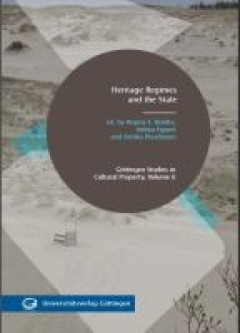
Heritage regimes and the state
What happens when UNESCO heritage conventions are ratified by a state? How do UNESCO’s global efforts interact with preexisting local, regional and state efforts to conserve or promote culture? What new institutions emerge to address the mandate? The contributors to this volume focus on the work of translation and interpretation that ensues once heritage conventions are ratified and implement…
- Edition
- Ed. 2
- ISBN/ISSN
- 9783863951221
- Collation
- 413p.
- Series Title
- -
- Call Number
- 363.69 HER b
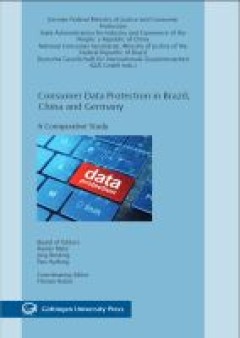
Consumer data protection in Brazil, China and Germany
The rapid development of new information and communication technologies has changed people’s everyday life and consumption patterns significantly. The worldwide spread of those technologies provides many innovations for consumers, but it can also bear risks, such as the indiscriminate collection, storage and cross-border flow of personal data, illegal spying on Internet activities, disseminat…
- Edition
- -
- ISBN/ISSN
- 9783863952365
- Collation
- 222 p. ; 24 cm
- Series Title
- -
- Call Number
- 343.071 CON c

Politics and the environment in Eastern Europe
Europe remains divided between east and west, with differences caused and worsened by uneven economic and political development. Amid these divisions, the environment has become a key battleground. The condition and sustainability of environmental resources are interlinked with systems of governance and power, from local to EU levels. Key challenges in the eastern European region today include …
- Edition
- -
- ISBN/ISSN
- 9781800641341
- Collation
- 342 p. : ill.
- Series Title
- -
- Call Number
- 363.700947 KRA p
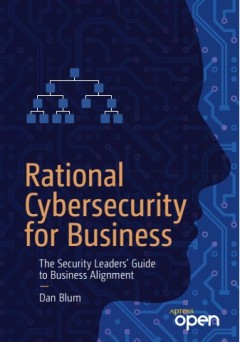
Rational cybersecurity for business : the security leaders' guide to business…
Use the guidance in this comprehensive field guide to gain the support of your top executives for aligning a rational cybersecurity plan with your business. You will learn how to improve working relationships with stakeholders in complex digital businesses, IT, and development environments. You will know how to prioritize your security program, and motivate and retain your team. Misalignment…
- Edition
- -
- ISBN/ISSN
- 9781484259528
- Collation
- xxvi, 333p. : ill.
- Series Title
- -
- Call Number
- 005.8 BLU r
 Computer Science, Information & General Works
Computer Science, Information & General Works  Philosophy & Psychology
Philosophy & Psychology  Religion
Religion  Social Sciences
Social Sciences  Language
Language  Pure Science
Pure Science  Applied Sciences
Applied Sciences  Art & Recreation
Art & Recreation  Literature
Literature  History & Geography
History & Geography